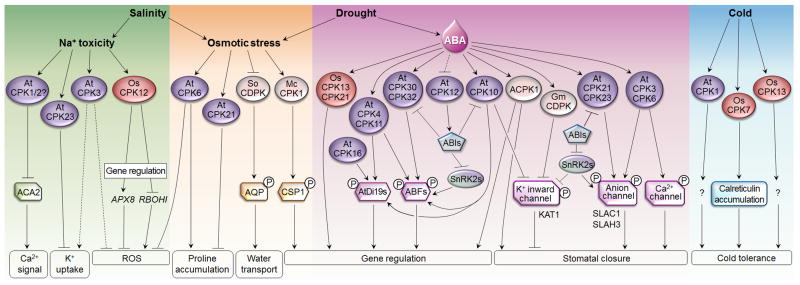Figure 3.
CDPK signaling network in abiotic stress responses. Plants sense drought and salinity through Na+ toxicity, osmotic stress and ABA synthesis to activate CDPKs, which regulate K+ uptake, ROS production, accumulation of compatible osmolytes (proline), water transport (aquaporin, AQP) and gene expression. Redundant CDPKs modulate gene expression by activating the transcription factors ABFs and AtDi19s. AtCPK12 is a negative regulator that stimulates the protein phosphatase ABIs, inhibiting SnRK2- and CDPK-dependent transcriptional regulation. CDPKs also promote stomatal closure by inhibiting the K+ inward channel (KAT1), and activating slow-type anionic channels (SLAC1 and SLAH3). CDPKs and SnRK2s share common substrates (ABFs and channels) and common down-regulators (ABIs). Some CDPKs also inhibit permeable Ca2+ channels or Ca2+-pumps (ACA2) in a negative feedback loop. Several CDPKs have been shown to trigger cold tolerance; however, the molecular mechanism is not understood.

